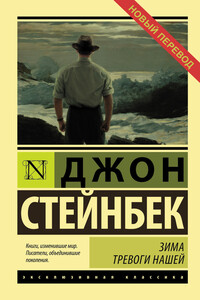Once there was a war | страница 20
In the morning the lighters come in and hug the sides of the troopship. The big iron doors open and the troops move out and take their places on the decks of the little boats. The portholes high above are filled with heads looking down. Men for a later debarkation. The little boat moves off, puffs up the bay among the tugs and the destroyers and the anchored freighters. The soldiers are self-conscious in a new place. They regard this new land skeptically as one must when he is not sure of himself. The little boat puffs up to the dock, which has mysteriously become a quay, pronounced “key,” which is, of course, ridiculous.
Now as the lighter ties up an astonishing thing happens. A band of pipers marches out in kilts, with bagpipes and drums and the swingy march of pipers. The harsh skirling cuts through the air. The most military, the most fighting music in the world. Our men crowd the rail. The band approaches, drums banging, pipes squealing and, as they draw abreast, the soldiers break into a great cheer. They may not like the harsh music; it takes time to like it; but something of the iron of the music goes into them. The pipers wheel and march back and away. It was a good thing to do. Our men, in some deep way, feel honored. The music has stirred them. This is a different war from the one of training camps and strategy at post exchanges.
From the deck of the lighter the men can see the roofless houses, the burned-out houses. The piles of rubble where the bombs have fallen. They have seen pictures of this and have read about it, but that was pictures and reading. It wasn’t real. This is different. It isn’t like the pictures at all. On the quay, the Red Cross is waiting with caldrons of coffee, with mountains of cake. They have been serving since dawn and they will serve until long after dark. The gangplank to the lighter is fixed now. The men, carrying their heavy barrack bags, packs on their backs and rifles slung over their shoulders, struggle up the steep gangway to the new country. And in the distance they can hear the sound of the pipes greeting another lighter-load of troops.
A PLANE’S NAME
A BOMBER STATION, June 26, 1943—The bomber crew is getting back from London. The men have been on a forty-eight-hour pass. At the station an Army bus is waiting, and they pile in with other crews. Then the big bus moves through the narrow streets of the little ancient town and rolls into the pleasant green country. Fields of wheat with hedgerows between. On the right is one of the huge vegetable gardens all cut up into little plots where families raise their own produce. Some men and women are working in the garden now, having ridden out of town on their bicycles.






